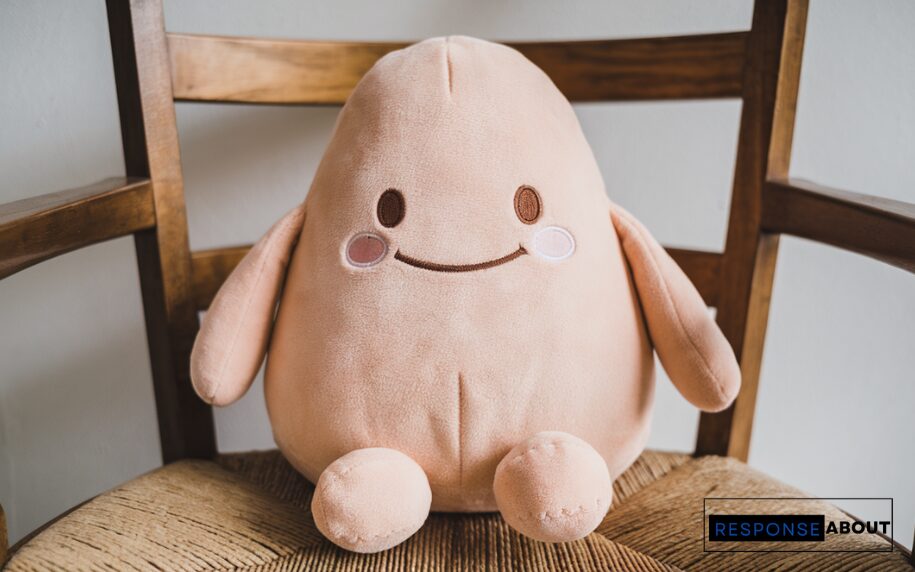“Pookie” might sound a bit silly and unexpected at first. Still, this endearing nickname has wormed its way into the hearts of many, becoming a beloved term of affection exchanged between partners, friends, and family.
As someone who’s been called “pookie” a time or two myself (and maybe even used it on occasion), I totally get the appeal. It’s just so darn cute and playful! But if you’re curious to learn more about what makes this quirky term of endearment so special, you’ve come to the right place.
In this article, we’ll explore the wonderful world of “pookie”—its origins, meanings, and all the fun ways it’s used to spread a little extra love and sweetness in our daily lives.
What Does “Pookie” Actually Mean?
At its core, “pookie” is a term of endearment—a sweet, affectionate nickname you might use for someone you love and adore. It’s right up there with classics like “honey,” “sweetheart,” and “darling,” but with a more playful, lighthearted twist.
The word itself is thought to have originated as a variation of “puck,” a character from English folklore known for being mischievous and impish. Over time, “puck” evolved into “pookie,” shedding some of its naughtier connotations and taking on a decidedly more adorable, cuddly vibe.
So when someone calls you “pookie,” they’re basically saying “You’re super cute and I’m totally smitten with you!” It’s a way of expressing affection that feels warm and fuzzy, but also a little bit fun and flirty.
Interestingly, “pookie” isn’t reserved solely for romantic relationships. Depending on the context and the nature of your bond with someone, it can be used to show affection in all sorts of situations:
- Romantic Relationships: Between partners, “pookie” is often used as a cute, playful pet name. You might call your girlfriend “pookie” when you’re feeling extra lovey-dovey, or your boyfriend might use it when he’s trying to butter you up for a favor (hey, we’ve all been there!).
- Friendships: Among besties, “pookie” can be a fun, silly way to show your affection. It’s the perfect nickname to pull out when your BFF is being extra adorable or when you want to cheer them up with a little dose of silliness.
- Family Bonds: Parents and grandparents often have a whole arsenal of cutesy nicknames for the little ones in their lives, and “pookie” definitely makes the list. It’s a term that can make kiddos feel extra loved and special—like a big, warm hug from Mom or Dad.
- Pet Names: Fur babies need love too, and it turns out “pookie” is a super popular nickname for our four-legged friends! It’s just so satisfying to look at your precious pup or cuddle your cute kitty and say, “Who’s the best little pookie in the whole wide world? You are!”
No matter the relationship, “pookie” brings an element of warmth, sweetness, and pure, unadulterated cuteness to any interaction. It’s like a verbal snuggle—a way to make someone feel treasured and adored with just a single word.
What are Some Alternatives to “Pookie”?
Of course, as much as we adore “pookie,” there’s a whole wide world of cute nicknames out there just waiting to be used! If you’re looking to switch things up or find a term that feels a little more “you,” here are some adorably endearing alternatives to try on for size:
- Snookums: A fun, almost exaggerated way to express affection that’s sure to put a smile on your sweetheart’s face.
- Sweetie: An oldie but goodie that works for just about any loving bond—romantic, platonic, or familial.
- Honeybun: For the person in your life who’s as sweet as can be! A mashup of “honey” and “bun” that’s both cozy and cute.
- Cutie Pie: Playful, simple, and oh-so-adorable—the perfect pick for someone who’s as cute as a button!
- Lovebug: A whimsical term that’s equal parts cuddly and endearing. Ideal for your one and only love.
- Buttercup: Gentle and old-timey with a romantic flair—a great match for your darling sweetheart.
- Darling: Simple, timeless, and unabashedly affectionate—a classic way to make your love feel cherished.
Each of these nicknames carries the same heartfelt sentiment as “pookie,” just with its own unique flavor. So go ahead and experiment! Try a few on for size and see which ones feel most natural rolling off your tongue. And don’t be afraid to get creative and come up with your own special terms of endearment that are totally unique to you and your favorite people.
What’s the Best Way to Respond When Called “Pookie”?
So now that you’re well-versed in the wide world of “pookie,” let’s talk about how to actually use this endearing term in your day-to-day interactions. Whether you’re a seasoned pro or a total newbie to the nickname game, these tips will help you incorporate “pookie” (and other cute terms) into your convos with confidence!
Keep It Playful
One of the best things about nicknames like “pookie” is their inherent sense of lightheartedness and fun. So when you’re peppering your chats with cute pet names, embrace the silliness and keep things playful!
For example, when your partner calls you “pookie,” you might respond with something like “Right back ‘atcha, pookie bear!” or “Aww, you know just how to make this pookie’s heart melt!” Lean into the adorableness and have a good giggle together.
Show Your Affection
While being playful is great, it’s also important to use nicknames like “pookie” to convey genuine affection. When your loved one calls you by your special pet name, let them know how much it means to you by responding with an affectionate message of your own.
You might say something like, “Hearing you call me ‘pookie’ always makes my day!” or simply “I love being your pookie.” Reaffirming your bond through these small, sweet expressions can do wonders for your relationship.
Play Around with Puns
If you really want to take your “pookie” game to the next level, try incorporating some cute puns or wordplay into your responses! It’s a surefire way to elicit a smile (and probably an eye roll or two, but hey, that’s part of the fun!).
Here are some punny ideas to get you started:
- “I’m not just any pookie, I’m a pookie-licious treat!”
- “You’re the peanut butter to my pookie-jelly sandwich!”
- “I’m one lucky pookie to have you in my life!”
The sillier and more groan-worthy, the better. It’s all about embracing the corniness and letting your playful side shine.
Set (and Respect) Boundaries
Now, as much as we love a good pet name, it’s important to recognize that not everyone is comfortable with them. If you’re in a new relationship or if you’re unsure how the other person feels about nicknames like “pookie,” it’s always a good idea to check in and make sure you’re on the same page.
You can broach the subject with a casual question like “Hey, how do you feel about cute nicknames? Is ‘pookie’ something you’d be into, or do you prefer to stick with our actual names?” Letting your partner know that their comfort level is a priority will show that you respect their boundaries and care about their feelings.
And if it turns out pet names aren’t their thing, that’s totally okay! You can still express your affection in plenty of other ways that feel good for both of you.
Where Has “Pookie” Been Used in Pop Culture?
If you really want to spice up your pet name repertoire, why not look to pop culture for some fun, fresh ideas? “Pookie” has made its way into countless movies, TV shows, and songs over the years, so there’s plenty of inspiration to draw from.
One of my personal favorites? The famous “pookie” scene from the classic early ’90s movie New Jack City. I mean, who can forget Chris Rock’s character hilariously bemoaning his nickname? You and your partner could easily riff on that scene for some seriously silly inside jokes.
Or if music is more your speed, take a cue from artists like Aya Nakamura who’ve proudly reclaimed “pookie” in their lyrics. Crank up the tunes and serenade your sweetheart with your own “pookie” anthem—bonus points if you make up your own absurdly adorable rhymes!
Beyond the big screen and Billboard charts, “pookie” has also become a mainstay in internet culture. From TikTok trends to cute animal videos to meme-worthy moments, this playful term of endearment seems to pop up everywhere online. So if you’re ever in need of a “pookie” pick-me-up, just head to your favorite social media platform and prepare to be bombarded with cuteness overload!
Why Do We Love Cutesy Nicknames Like “Pookie”?
At this point, you might be thinking “Okay, but why do we gravitate towards cutesy nicknames like “pookie” in the first place? What’s the deal with our collective obsession with these seemingly silly terms of endearment?”
While I’m no certified love doctor, I’ve got a few theories about why pet names like “pookie” just hit different in our relationships:
- They create a special, intimate bond.
Using a nickname that’s unique to your relationship is like having a secret language that only you and your partner understand. It’s a way of saying “Hey, this silly little word is just for us—no one else gets to be part of this inside joke.” That exclusivity can make you feel extra close and connected to your person.
- They add an element of playfulness.
Let’s be real, adulting can be stressful and mundane a lot of the time. Having a cute pet name to throw around with your partner is a great way to inject some much-needed levity and laughter into your daily life. It’s like an instant reminder not to take yourself (or your relationship) too seriously.
- They make you feel safe and cherished.
There’s something about being called a special, affectionate nickname that just makes you feel warm and fuzzy inside. It’s like a verbal hug from your favorite person—a way for them to show you that you’re loved, valued, and oh-so-precious to them.
- They tap into nostalgia.
Many of us have fond memories of being called cute pet names by our parents or grandparents when we were kids. Hearing a nickname like “pookie” from a partner can evoke those same feelings of comfort, safety, and unconditional love that we experienced in childhood. It’s like a little blast from the past in the best possible way.
- They’re just plain fun to say!
C’mon, “pookie” is just a fun word! It’s got that oh-so-satisfying “oo” sound, the plosive pop of the “p,” the kick of the “k”—it’s practically begging to be uttered in a sing-songy voice with a big ol’ smile on your face. And who doesn’t love an excuse to get a little silly with their words every now and then?
At the end of the day, I think the power of pet names like “pookie” comes down to the way they make us feel. They’re a playful, affectionate shorthand for “you’re special to me”—a way to infuse even the most mundane moments with a little extra love and laughter.
Frequently Asked Questions
Is “pookie” only used in romantic relationships?
No, “pookie” is a versatile term of endearment used in many different types of relationships, including friendships, family bonds, and even with beloved pets. It’s a way to express affection and playfulness with anyone you hold dear.
Can “pookie” be used for both men and women?
Absolutely! “Pookie” is a gender-neutral nickname that can be used for people of any gender identity. It’s all about the sentiment behind the term, not the specific person it’s being used for.
Is “pookie” a common nickname?
While “pookie” may not be as common as “honey” or “sweetheart,” it’s a well-known and well-loved term of endearment. Its popularity seems to ebb and flow over time, but it always manages to maintain a special place in the hearts of those who use it
Where did the term “pookie” originate?
The exact origins of “pookie” are a bit unclear, but many linguists believe it’s derived from the English word “puck,” which referred to a mischievous sprite in folklore. Over time, “puck” evolved into the sweeter, more affectionate “pookie” we know and love today.
Is it weird to use “pookie” if you’re not used to using pet names?
Not at all! It’s normal to feel a bit awkward or self-conscious when you first start using terms of endearment like “pookie.” But with a little practice and a lot of sincerity, it will start to feel more natural in no time. Just remember, there’s no right or wrong way to express affection—do what feels authentic to you!
What if the person I’m calling “pookie” doesn’t like it?
If you’re unsure how your partner, friend, or family member feels about being called “pookie,” the best thing to do is simply ask! Have an open, honest conversation about your desire to use cute nicknames and see how they respond. If “pookie” isn’t their cup of tea, work together to find a term of endearment that feels good for both of you.
Can I use “pookie” for my kids or is it too babyish?
Many parents and grandparents love using “pookie” as a sweet, playful nickname for the little ones in their lives. Its babyish qualities are part of its charm! However, as kids grow older, they may start to prefer more “grown-up” terms of endearment. The key is to follow their lead and respect their preferences as they age.
Will use “pookie” make my relationship stronger?
While using cute nicknames like “pookie” can certainly add an extra layer of sweetness and fun to your relationship, it’s important to remember that they’re not a magic solution for deeper issues. At the end of the day, the most important factors in a strong, healthy bond are things like trust, communication, respect, and genuine affection—with or without a silly pet name!
Conclusion
At the end of the day, pet names like “pookie” are just one small way to express affection and build intimacy in a romantic relationship. Whether you prefer something sweet and traditional or quirky and offbeat, the most important thing is to choose a pet name that feels authentic to you and your partner.
So, the next time your significant other calls you “pookie,” take a moment to appreciate the love and affection behind the word. And if “pookie” isn’t quite your style, don’t be afraid to get creative and come up with your own special pet name that perfectly captures the unique bond between you and your partner.
Remember, no matter what pet names you choose, the real magic lies in the love, respect, and open communication that you bring to your relationship day in and day out. Those are the things that truly make a relationship thrive—pookie or no pookie!


